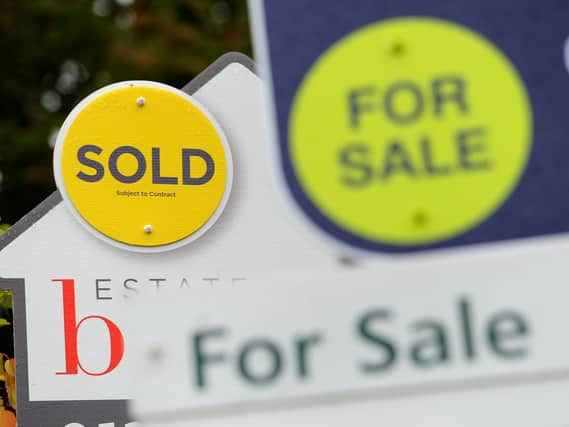Easing the pain of that capital gains tax bill - Gareth Shaw


Capital gains tax is due on the profits you make when you sell a property. You pay 18 per cent if you’re a basic-rate taxpayer, and 28 per cent if you’re a higher-rate taxpayer.
However, you won’t pay the tax on your main home – you get ‘private residence relief’ for the entire period that the property was your main residence, plus another nine months. This prevents capital gains tax being applied to your profits.
Advertisement
Hide AdAdvertisement
Hide AdAlthough you only own one property, it ceased to be your main home eight years ago, when you began to rent it out. This means that the proportion of the profit you made between 2012 and 2020 could land you with a tax bill.
I would suggest getting some professional tax advice, but I’ll run through what your bill might potentially be.
Firstly, you can deduct expenses from your profit, which can include the stamp duty you paid, estate agency fees when selling, and any costs you’ve incurred improving the property (such as building an extension).
In 2005, you paid now 1 per cent stamp duty on properties worth between £120,000 and £250,000, meaning you would have paid £1,300. Say your estate agency costs are around 1.5 per cent, you’ll incur selling costs of around £4,000.
Advertisement
Hide AdAdvertisement
Hide AdUnfortunately, the tax is payable on the price you bought the property for and the price you sold it for, minus expenses – not the money you raised to buy the property (i.e. your mortgage).
So you cannot deduct your debt from your profit. So, your net profit could be £134,700.
When working out your capital gains tax liability on a property, it’s often helpful to think of the period you’ve owned the home in months, rather than years.
You’ve owned the property for approximately 15 years, which is 180 months, and it was your main home for approximately seven years, which is 84 months.
Advertisement
Hide AdAdvertisement
Hide AdAdding on the additional nine months of private residence tax relief, you get 93 months out of the 180 you’ve owned are covered by private residence relief. So, 51 per cent of the profit is not liable to capital gains tax, equivalent to around £68,500.
That leaves you with a taxable profit of £66,200.
However, you can cut this down even further. Both you and your wife have a capital gains tax allowance, which allows you to make a certain amount of profit each year without paying any tax. In the 2020-21 tax year, this will be £12,300 each – or £24,600 in tax-free profit between the two of you.
That leaves you with £41,600 of profit, on which you would have to pay capital gains tax. As the property is owned jointly by you and your wife, the profit is assumed to be equally split.
Therefore you would pay tax on £20,800 and your wife would pay tax on the same amount, either at the basic rate of 18 per cent or at the higher-rate of 28 per cent.
Advertisement
Hide AdAdvertisement
Hide AdThis could leave you with a bill of between £7,488 and £11,648 in total, depending on your tax situation.
If the amount of profit you make pushes you into a higher tax bracket, you may pay the lower rate on part of it, and the higher rate on the rest.
After you’ve settled your mortgage, debt and tax bill, the figures suggest you’d be left with just under £40,000 in profit, in the best case scenario. There’s lots I don’t know about your situation, so I suggest taking professional tax advice if you don’t feel confident working out your potential bill.
But bear in mind that anyone who makes a taxable capital gain selling property in the 2020-21 tax year will have to settle their bill within 30 days of the completion of the sale, by submitting ‘residential property return’.
Gareth Shaw is head of money content at Which?